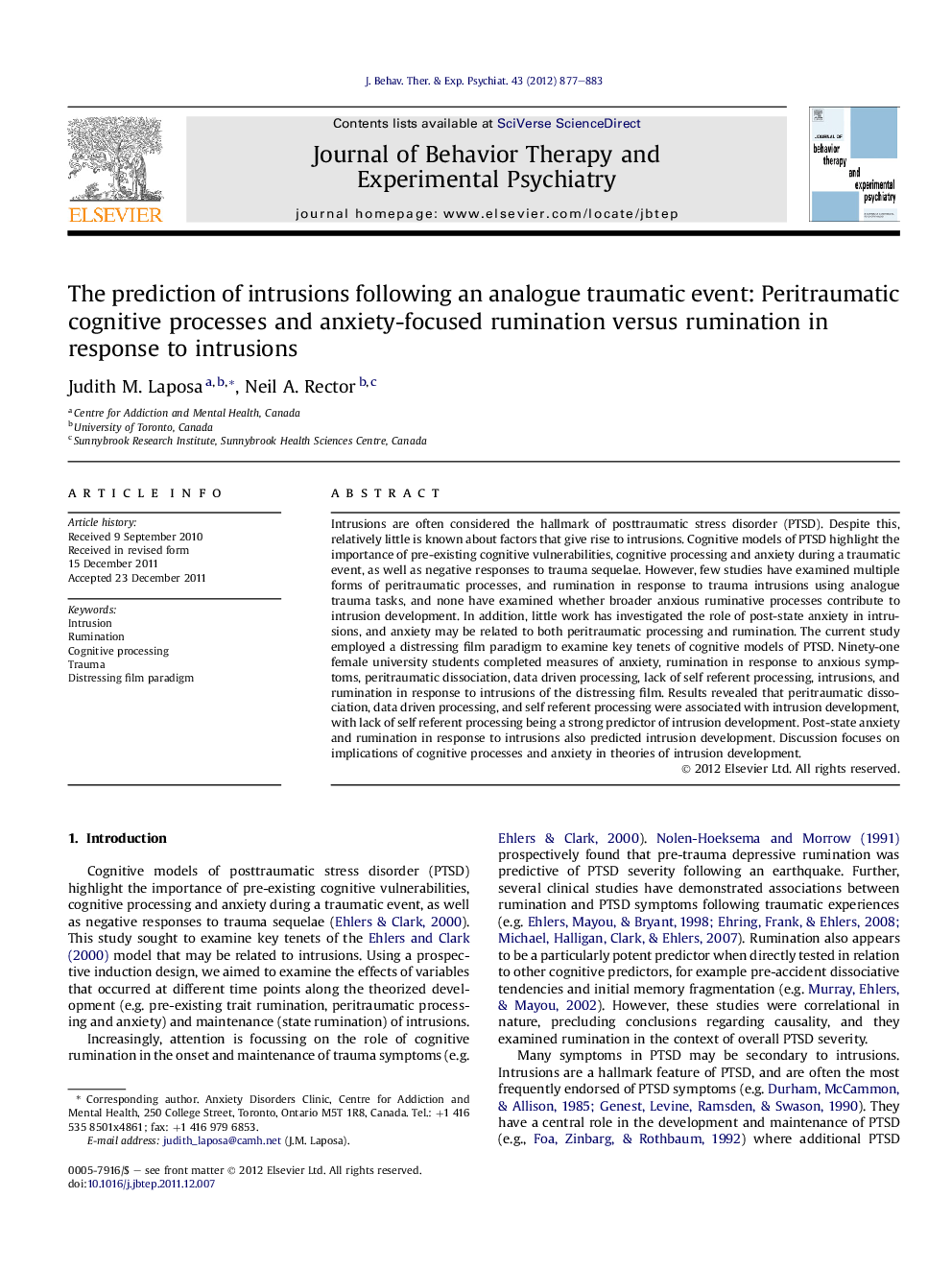| Article ID | Journal | Published Year | Pages | File Type |
|---|---|---|---|---|
| 910391 | Journal of Behavior Therapy and Experimental Psychiatry | 2012 | 7 Pages |
Intrusions are often considered the hallmark of posttraumatic stress disorder (PTSD). Despite this, relatively little is known about factors that give rise to intrusions. Cognitive models of PTSD highlight the importance of pre-existing cognitive vulnerabilities, cognitive processing and anxiety during a traumatic event, as well as negative responses to trauma sequelae. However, few studies have examined multiple forms of peritraumatic processes, and rumination in response to trauma intrusions using analogue trauma tasks, and none have examined whether broader anxious ruminative processes contribute to intrusion development. In addition, little work has investigated the role of post-state anxiety in intrusions, and anxiety may be related to both peritraumatic processing and rumination. The current study employed a distressing film paradigm to examine key tenets of cognitive models of PTSD. Ninety-one female university students completed measures of anxiety, rumination in response to anxious symptoms, peritraumatic dissociation, data driven processing, lack of self referent processing, intrusions, and rumination in response to intrusions of the distressing film. Results revealed that peritraumatic dissociation, data driven processing, and self referent processing were associated with intrusion development, with lack of self referent processing being a strong predictor of intrusion development. Post-state anxiety and rumination in response to intrusions also predicted intrusion development. Discussion focuses on implications of cognitive processes and anxiety in theories of intrusion development.
► Peritraumatic dissociation, data driven and lack of self referent processing were associated with intrusions. ► Lack of self referent processing uniquely predicted intrusions. ► Rumination in response to intrusions and post-state anxiety were associated with intrusions. ► Trait anxious rumination was not associated with intrusion frequency.
